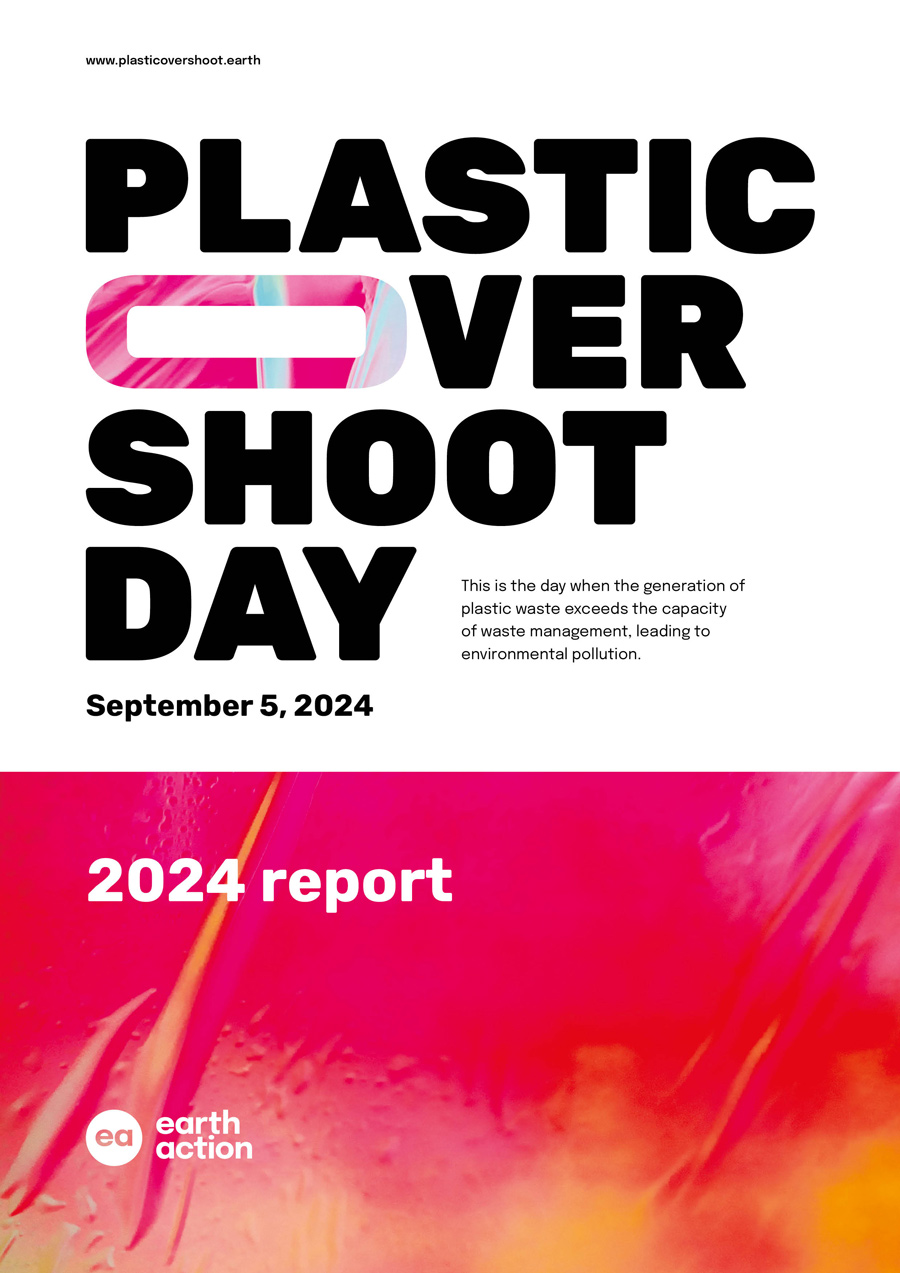Plastic Overshoot Day marks the point when the amount of plastic waste generated exceeds the world’s capacity to manage it, resulting in environmental pollution. In 2024, the global Plastic Overshoot Day is projected to occur on September 5th. Each country has its own Plastic Overshoot Day, which is determined by the amount of plastic waste generated and the country’s capacity to manage it.

To facilitate targeted and effective solutions, six country archetypes have been established, enabling the profiling of countries based on factors such as the amount of plastic waste the population produces, the import and export volumes of waste, and the country’s waste treatment capabilities. By considering these archetypes, we can present recommendations tailored to each country’s unique circumstances. These recommendations aim to empower countries to improve their Overshoot Day and mitigate plastic pollution. They include strategies such as reducing plastic consumption and usage, promoting circular economy models such as repair and reuse initiatives, implementing robust waste management policies like extended producer responsibilities (EPR), enhancing local waste management infrastructure, and ceasing the import of plastic waste from other countries. By adopting the measures relevant to their situation, countries can make significant progress in combatting plastic pollution.
Each country has unique realities related to plastic pollution – including plastic usage levels, waste management infrastructure, and relevant policies – Plastic Overshoot Day looked to establish categories so that countries could be profiled and relevant and meaningful solutions could be presented and explored.
The Moderate Polluters
On average, the Moderate Polluters tend to have a medium plastic waste generation level. Half of them have exported some of their waste. These countries do not effectively manage their waste and negative environmental impacts result both domestically and in the countries receiving the waste.
The Overloaders
The Overloaders are high plastic waste generators, who export a significant amount of their waste. Their waste is well managed. Unlike the similarly high-consuming Transactors, the Overloaders import less waste than they export. This imbalance therefore overloads the waste management systems of other countries, likely creating mismanagement issues in countries where Overloaders send their plastic waste.
The Low-Waste-Producing Polluters
Despite their low waste production levels, the Low-Waste-Producing Polluters contribute to plastic pollution levels due to their poor waste management practices. Depending on the size of the population, some countries can be large contributors to the global pollution.
The Toxic Waste Producers
The Toxic Waste Producers are high plastic waste generators, with waste that is mismanaged at high levels. Some of these countries export their waste to places that do not have proper waste management infrastructure. Plastic pollution in many countries is impacted by waste that was mismanaged after being received from Toxic Waste Producers.
The Transactors
The Transactors are countries with high rates of plastic waste production. Their waste tends
to be well-managed, although most do not yet have extensive circular systems around plastics. The Transactors are wealthy countries from Europe. They export a lot of their waste but also import a lot of waste from neighboring countries. Through this exchange of waste with their trade partners they have been able to optimize their waste management practices, resulting in a low volume of waste ending up mismanaged and low risk of plastic leakage into the environment.
The Self-Sustainers
The Self-Sustainers are moderate plastic waste generators per capita that can to some extent manage their waste internally, although improvements are needed for some of them.
A key tenet of EA’s philosophy and commitment to support collective problem-solving is transparency. Check out a detailed description about Plastic Overshoot Day in the expanded methodology.
Plastic Overshoot Day is an initiative led by the non-for-profit arm of EA – Environmental Action, based in Lausanne.